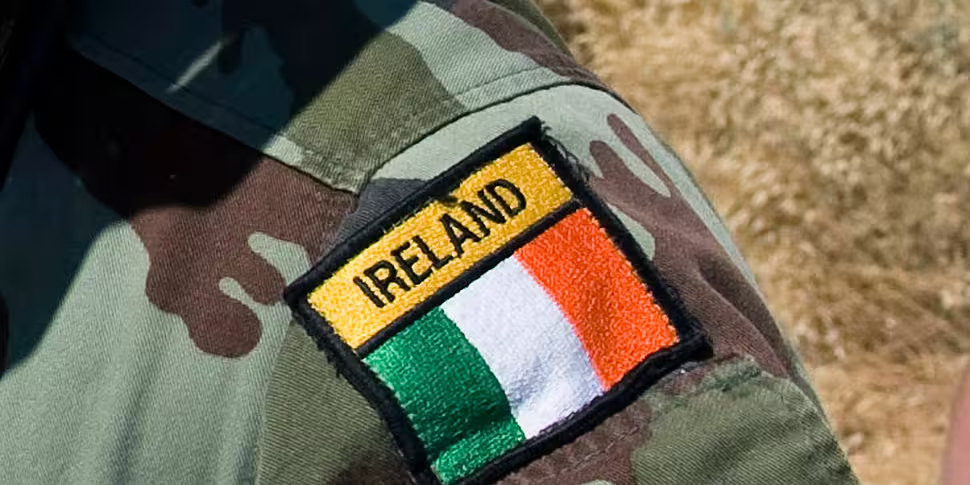A proposal to amend Ireland's triple lock system on the deployment of Defense Forces peacekeepers overseas will be brought to Cabinet next month by the Tánaiste.
The triple lock system is a mechanism whereby the cabinet approves the deployment then the Dáil, but it must also be approved by the UN Security Council.
On Newstalk Breakfast, defense and security expert Declan Power said the idea of the triple lock system is “completely the opposite” to what is “being proclaimed” now.
“It was brought in before we deployed a significant number of troops that would have included combat elements to the Congo,” he said.
“The idea of it was actually completely the opposite to what's often been proclaimed now.
“The idea of it was to limit being sucked into large scale UN actions that might not suit us and that could have been up to and including war.
“In the debates that were taking place at the time about being involved with the UN, there was a concern then about it infringing on our neutrality, because it was believed that we could be compelled to have to take up arms in defense of the UN Charter, which, it's a sort of a circular argument.”
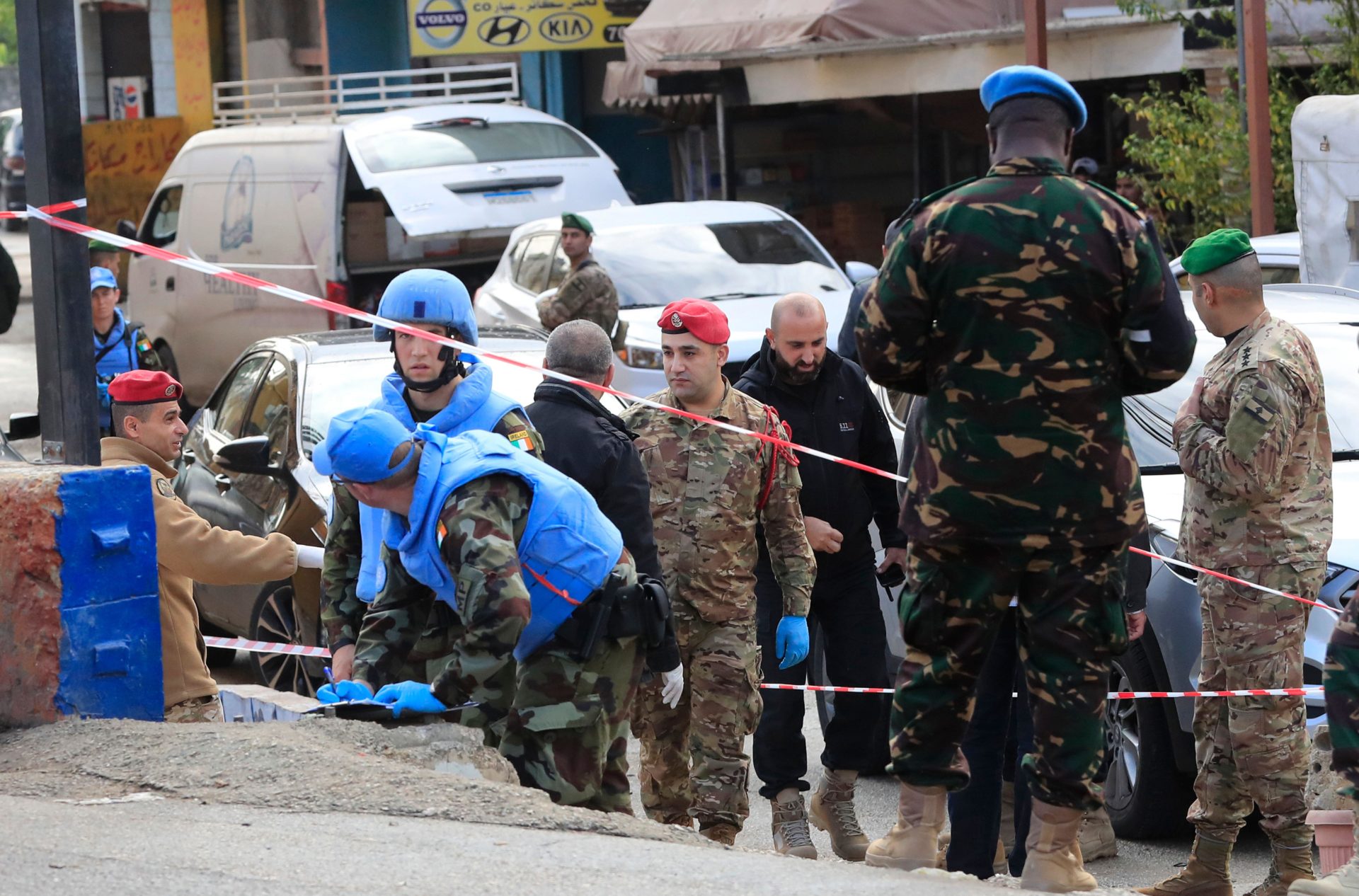 Irish UN peacekeepers and Lebanese soldiers investigate the scene where gunfire came on a UN peacekeeper convoy in the Al-Aqbiya village, south Lebanon, Thursday, Dec. 15, 2022. (AP Photo/Mohammed Zaatari)
Irish UN peacekeepers and Lebanese soldiers investigate the scene where gunfire came on a UN peacekeeper convoy in the Al-Aqbiya village, south Lebanon, Thursday, Dec. 15, 2022. (AP Photo/Mohammed Zaatari)Mr Power said various interpretations have been taken of the triple lock by various Attorney Generals.
“Along the way, it was never initially defined as the Security Council being the ones to have the final say,” he said.
“It was about a cent of the UN, a cent of the Dáil and a cent of the Senate in the Government.
“The idea was that you had this three pronged approach to protect Ireland from being drawn into conflicts that it mightn't foresee and things of that nature.
“However, what has happened over the last number of decades because of the focus by Attorney Generals on the Security Council aspect… it has started to have a significant impact on the Irish State's ability to decide on their own basis of what we will or will not take part in.”
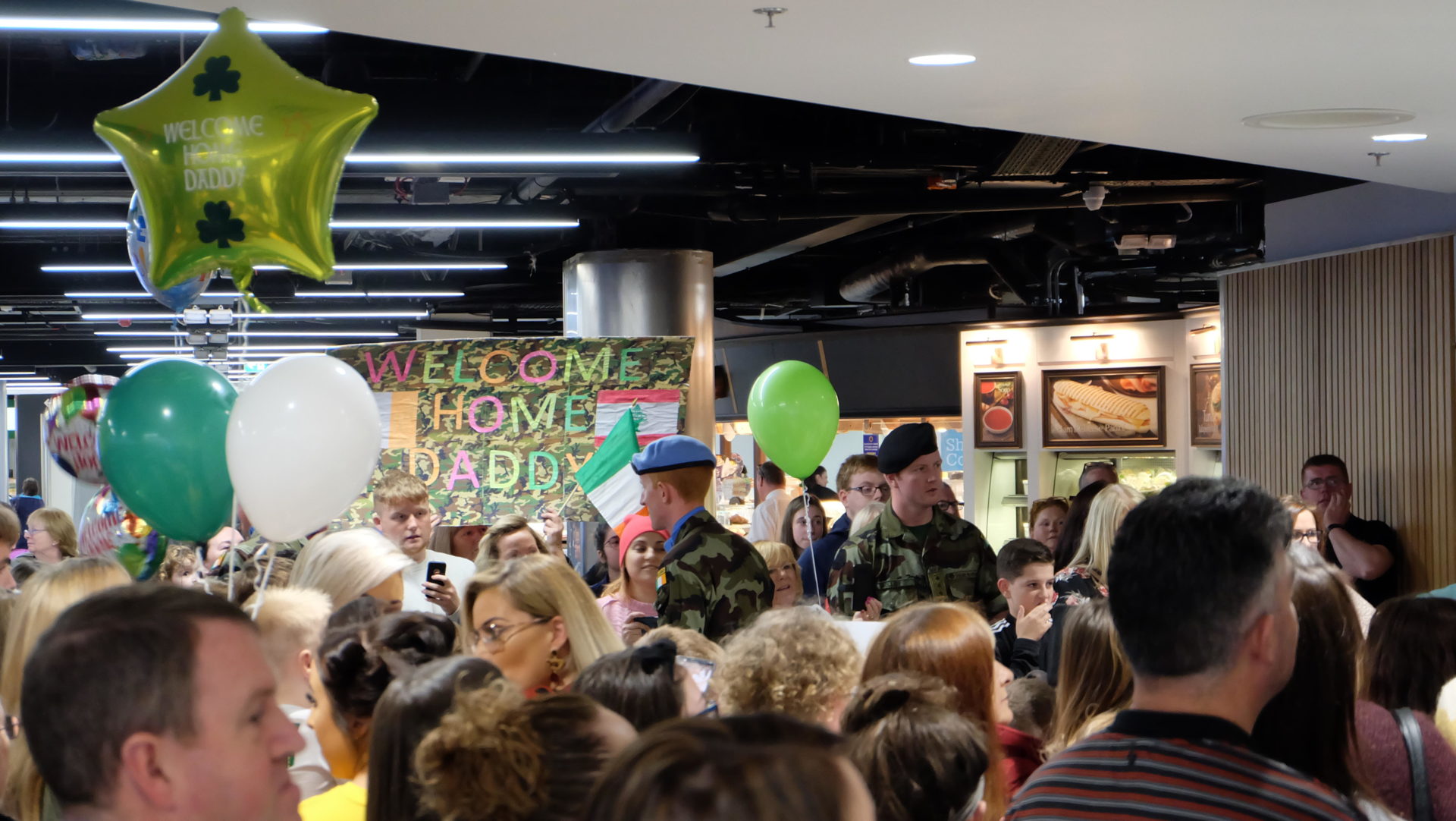 Crowds waiting at the arrival gate of Dublin Airport for the Irish UN troops returning home from Lebanon, welcoming them with cheers, balloons and signs. 18th Nov, 2018. Credit: Dt/Alamy Live News
Crowds waiting at the arrival gate of Dublin Airport for the Irish UN troops returning home from Lebanon, welcoming them with cheers, balloons and signs. 18th Nov, 2018. Credit: Dt/Alamy Live NewsThe triple lock doesn’t enhance or diminish the Irish version of neutrality, Mr Power claimed.
“There are two separate debates because the triple lock, I would argue, it certainly doesn't enhance or diminish our version of neutrality,” he said.
“I think it's important to understand that when people say getting rid of the triple lock, that the triple lock enhances our ability to engage in peacekeeping.”
“We actually were delayed by a year in taking part in one particular peacekeeping mission that involved deployment of naval assets, we had to pull out of Macedonia because of the Chinese and their disgruntlement with the Macedonian Government.”
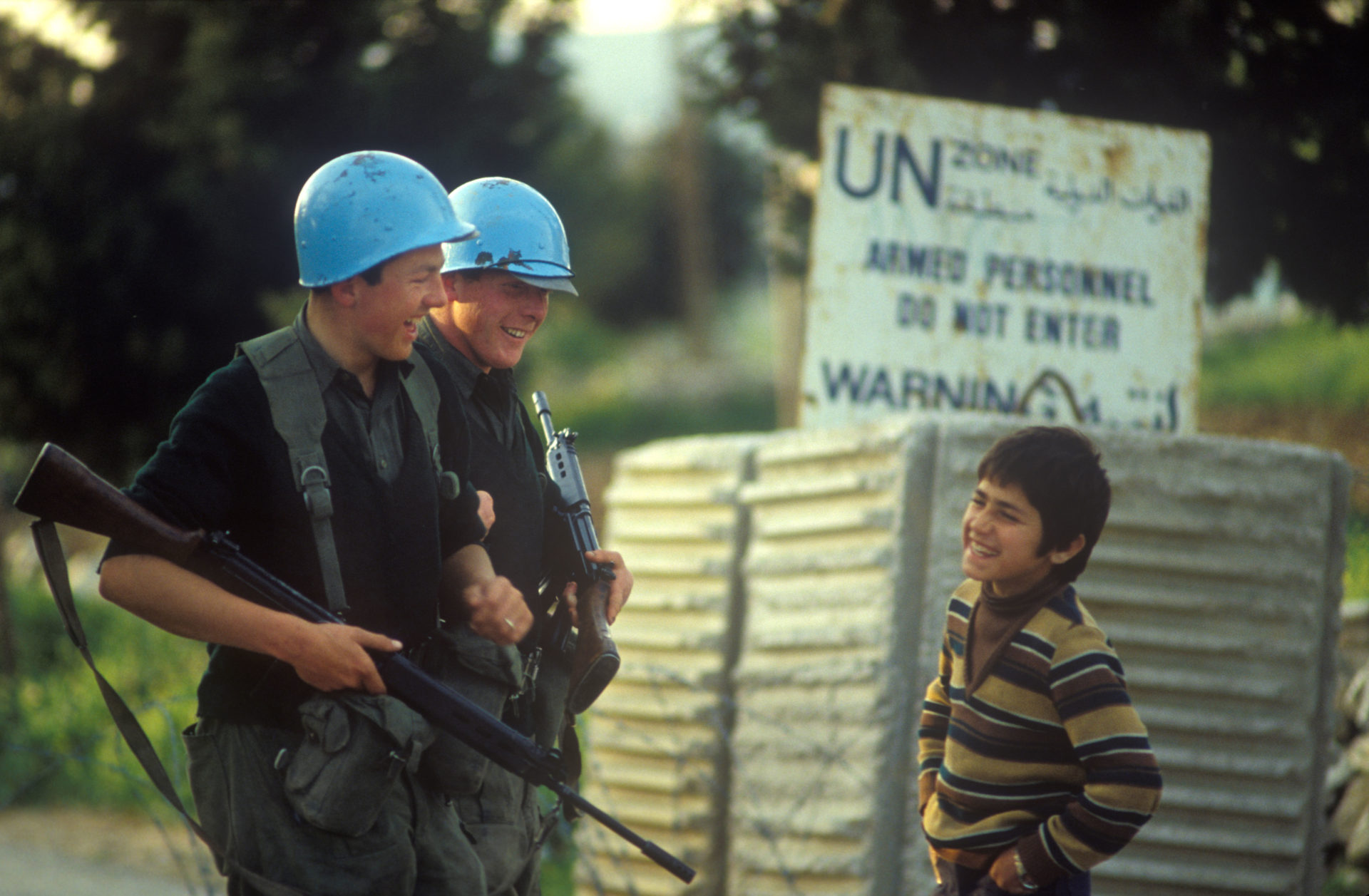 UN Peace Keepers, the 46th Irish Battalion wearing traditional blue helmets, two troops sharing a joke with a young Lebanese boy. April 1980 HOMER SYKES.
UN Peace Keepers, the 46th Irish Battalion wearing traditional blue helmets, two troops sharing a joke with a young Lebanese boy. April 1980 HOMER SYKES.Also on the show, Irish Anti-War Movement Co-Chair Mark Price said the Irish peacekeeping troops are not being “held back”
“The one example referred to, of the Chinese veto on a peacekeeping mission in 1999, is the only time that a peacekeeping mission was vetoed at the Security Council - there's no holding back,” he said.
“Irish people overwhelmingly support the triple lock when they know what it means, because they overwhelmingly support neutrality.
“The most recent poll says 75% of people want Ireland to remain neutral.
“The reason the triple lock is important is because it means that we're only going to fight in the framework of UN peacekeeping and that's the tradition that was set up by Frank Aiken in the 50s and which is a proud tradition that Irish people want to adhere to.”
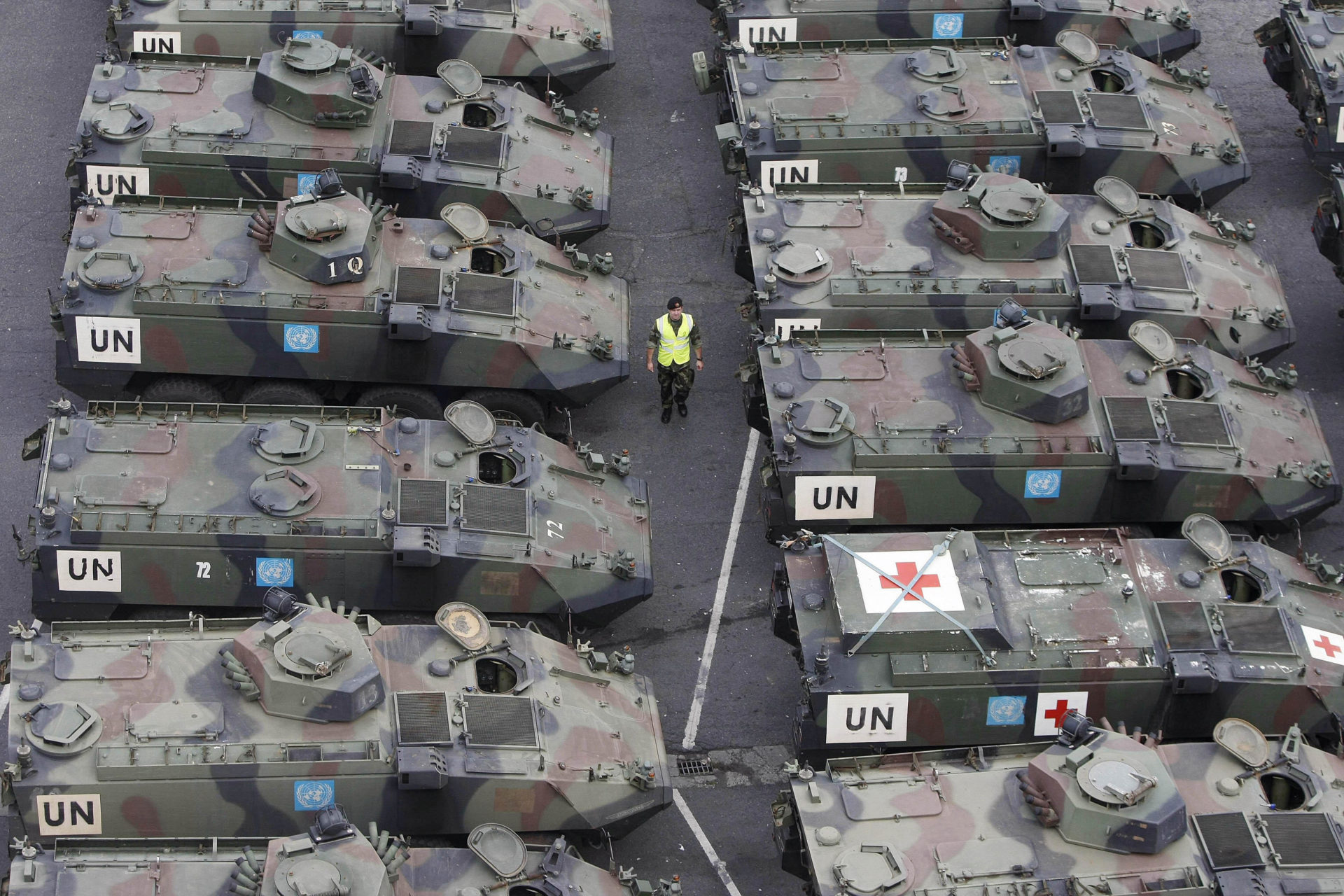 A member of the Defence forces walks through MOWAG Armoured Personnel Carriers unloaded from the MV Grande Senegal, into Dublin Port as the Defence Forces equipment is returned from their recent UN Mission in Chad. Image: Alamy
A member of the Defence forces walks through MOWAG Armoured Personnel Carriers unloaded from the MV Grande Senegal, into Dublin Port as the Defence Forces equipment is returned from their recent UN Mission in Chad. Image: AlamyMr Price said what Ireland needs is “diplomatic actions to bring about peace in various zones”.
He said Ireland does not need "a rampant increase in military spending" and "that's what is being proposed" by the people who want to get rid of the triple lock system.
Main image: Irish peacekeepers serving with the United Nations Interim Force in Lebanon (UNIFIL) in 2011 | Image: UN Photo/Pasqual Gorriz


